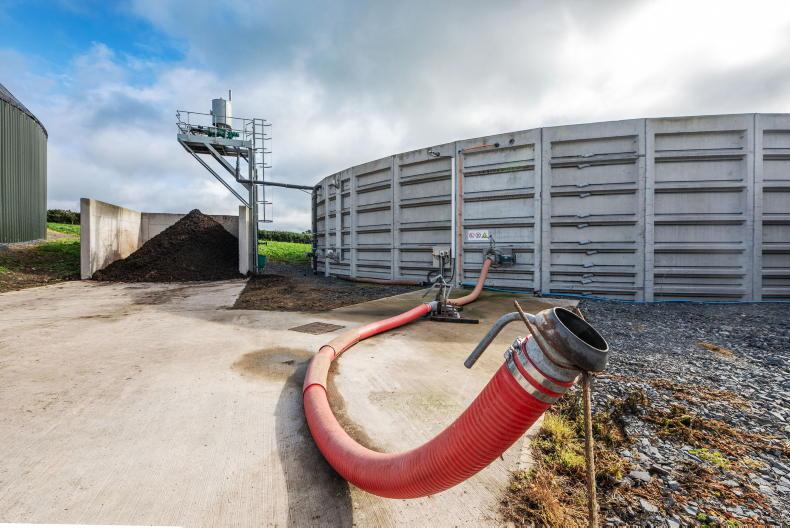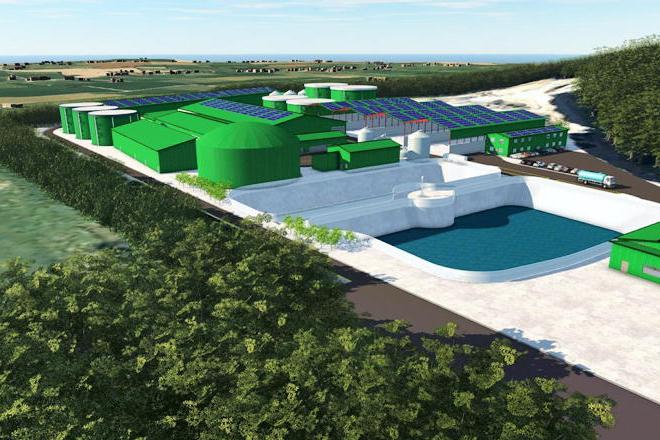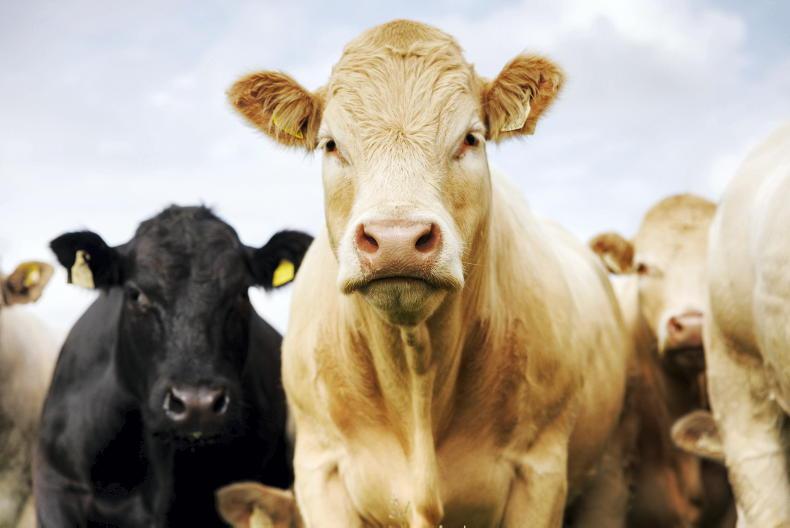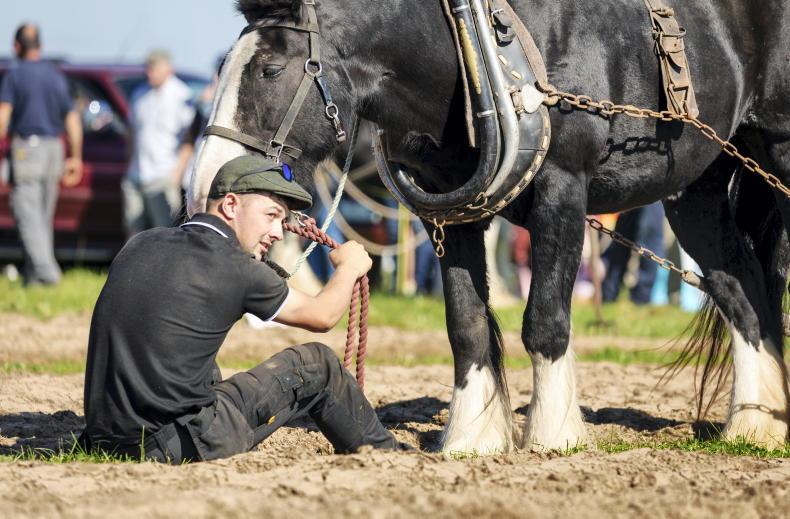The National Ploughing Championships is the main tyre-kicking event of the year for many farmers. However, it’s also a great opportunity to gather information on what may or may not work on your farm. This is no different for renewables, and there will be no shortage of suppliers and experts to talk to over the three days, including at the Irish Farmers Journal stand. Let’s run through the main areas you need to watch out for.
Solar panels
Solar panels will be the main renewable technology at the Ploughing and is likely to remain so in the coming years. There is set to be a wide range of solar PV providers in attendance throughout the event. When starting your solar PV journey, speaking with multiple suppliers is generally the first step. They will assess your energy usage and match the system size to your farm’s specific needs. Obtaining quotes from multiple suppliers is essential to ensure you get the best deal on the best equipment.
Remember, solar panels are a long-term investment, and the company you choose should be there for the long run, in case any issues arise. Keep this in mind, as there has been a notable influx of installers entering the market recently, and there is no guarantee they will all be around for the long term.
Biogas
While the momentum is behind biomethane, there is also significant interest in small-scale anaerobic digestion (AD) plants, which produce biogas for combustion in engines to generate electricity. Although there is currently no support scheme in place, there are suggestions that a scheme for smaller-scale plants is in development. This type of AD plant is the most common in Europe, with over 20,000 in operation. Several biogas plant suppliers will be in attendance, making it a great opportunity to learn about the economics behind this model.

There could be a lot of digestate available if an AD plant is built in your area.
Biomethane
Last year saw the debut of a new AD developer, Nephin Renewable Gas, and more developers are set to attend this year’s Ploughing. These developers are looking for farmers to supply sites, feedstock and use digestate, making it a good opportunity to find out what could be in it for you. Equally, with many farmers interested in diversifying into biomethane themselves, this is a great chance to learn what is involved.
Slurry
With the upcoming enhanced grant aid for slurry storage tanks, it’s a good opportunity to talk to tank suppliers. If an AD plant is being developed in your area, there’s a good chance they will be interested in entering a digestate export agreement with you if you have adequate tank storage.
Heat
Heat is a challenge to decarbonise and a significant expense for intensive farms. However, there are various grants available to help switch from gas, oil and diesel heating to electricity, HVO or biomass.
Heat recovery is also a simple win and is particularly suitable for dairy farms. Each year at the Ploughing, there are multiple suppliers of renewable heating technology to gather information from.

The Ploughing could be a good opportunity to find out what’s in it for farmers with AD.
Wind
While farm-scale wind energy isn’t currently at the forefront of Government policy, innovations in the sector are still taking place.
A new type of wind turbine, the RidgeBlade, made its debut in Ireland at the Ploughing last year and could make wind energy more accessible to farmers.
Furthermore, under the Small Scale Renewable Electricity Support Scheme (SRESS), there will soon be a 15-year Government support programme designed to make farm-scale wind projects more financially viable.

Solar PV will be the main renewable technology in Ireland for years to come.
Government
The event is also a great opportunity to meet with Government departments and get your questions answered. This year, in particular, there have been two major Government policies that directly impact farming: the National Biomethane Strategy and the SRESS. Arguably, both policies could be changed to make it easier for farmers to get involved with renewables in a meaningful and profitable way. However, both policies are still open to change and updates, so meeting with the departments at the Ploughing could be a useful means of explaining how these policies need to be adjusted to benefit you.
The National Ploughing Championships is the main tyre-kicking event of the year for many farmers. However, it’s also a great opportunity to gather information on what may or may not work on your farm. This is no different for renewables, and there will be no shortage of suppliers and experts to talk to over the three days, including at the Irish Farmers Journal stand. Let’s run through the main areas you need to watch out for.
Solar panels
Solar panels will be the main renewable technology at the Ploughing and is likely to remain so in the coming years. There is set to be a wide range of solar PV providers in attendance throughout the event. When starting your solar PV journey, speaking with multiple suppliers is generally the first step. They will assess your energy usage and match the system size to your farm’s specific needs. Obtaining quotes from multiple suppliers is essential to ensure you get the best deal on the best equipment.
Remember, solar panels are a long-term investment, and the company you choose should be there for the long run, in case any issues arise. Keep this in mind, as there has been a notable influx of installers entering the market recently, and there is no guarantee they will all be around for the long term.
Biogas
While the momentum is behind biomethane, there is also significant interest in small-scale anaerobic digestion (AD) plants, which produce biogas for combustion in engines to generate electricity. Although there is currently no support scheme in place, there are suggestions that a scheme for smaller-scale plants is in development. This type of AD plant is the most common in Europe, with over 20,000 in operation. Several biogas plant suppliers will be in attendance, making it a great opportunity to learn about the economics behind this model.

There could be a lot of digestate available if an AD plant is built in your area.
Biomethane
Last year saw the debut of a new AD developer, Nephin Renewable Gas, and more developers are set to attend this year’s Ploughing. These developers are looking for farmers to supply sites, feedstock and use digestate, making it a good opportunity to find out what could be in it for you. Equally, with many farmers interested in diversifying into biomethane themselves, this is a great chance to learn what is involved.
Slurry
With the upcoming enhanced grant aid for slurry storage tanks, it’s a good opportunity to talk to tank suppliers. If an AD plant is being developed in your area, there’s a good chance they will be interested in entering a digestate export agreement with you if you have adequate tank storage.
Heat
Heat is a challenge to decarbonise and a significant expense for intensive farms. However, there are various grants available to help switch from gas, oil and diesel heating to electricity, HVO or biomass.
Heat recovery is also a simple win and is particularly suitable for dairy farms. Each year at the Ploughing, there are multiple suppliers of renewable heating technology to gather information from.

The Ploughing could be a good opportunity to find out what’s in it for farmers with AD.
Wind
While farm-scale wind energy isn’t currently at the forefront of Government policy, innovations in the sector are still taking place.
A new type of wind turbine, the RidgeBlade, made its debut in Ireland at the Ploughing last year and could make wind energy more accessible to farmers.
Furthermore, under the Small Scale Renewable Electricity Support Scheme (SRESS), there will soon be a 15-year Government support programme designed to make farm-scale wind projects more financially viable.

Solar PV will be the main renewable technology in Ireland for years to come.
Government
The event is also a great opportunity to meet with Government departments and get your questions answered. This year, in particular, there have been two major Government policies that directly impact farming: the National Biomethane Strategy and the SRESS. Arguably, both policies could be changed to make it easier for farmers to get involved with renewables in a meaningful and profitable way. However, both policies are still open to change and updates, so meeting with the departments at the Ploughing could be a useful means of explaining how these policies need to be adjusted to benefit you.













SHARING OPTIONS